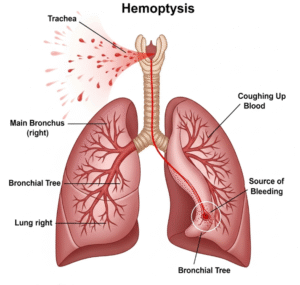Living in Korea as an expat brings many rewards — new culture, excellent infrastructure, and world-class healthcare — but it also comes with certain responsibilities. One of the most important is health insurance. Recent updates to Korea’s healthcare system have introduced changes that all foreign residents should understand, especially regarding eligibility, coverage, and payment requirements.
➤ Mandatory National Health Insurance for Long-Term Residents
Foreigners who stay in Korea for more than six months are now required to enroll in the National Health Insurance Service (NHIS) or show proof of equivalent private coverage.
If you are employed, your company usually registers you automatically and splits the premium cost with you. For the self-employed, students, or dependents, you must visit your local NHIS office and register in person. You’ll need your Alien Registration Card (ARC), passport, and proof of residence.
Some expats may apply for an exemption if they already hold a valid health insurance policy from their home country or employer that meets NHIS standards. However, exemptions are limited and require detailed proof of equivalent coverage.
➤ Who’s Covered and What’s Not
Once enrolled, NHIS provides a wide range of benefits:
- Doctor visits, hospital stays, surgeries, and prescriptions are typically covered.
- Emergency care and maternity services are included.
- You pay a co-payment (around 20–50%) depending on the type of hospital or treatment.
However, some services are not fully covered, including:
- Cosmetic and elective surgeries
- Some dental and vision treatments
- Certain alternative therapies like specialized acupuncture
For these gaps, many expats choose private or international insurance as supplemental coverage. If your income is low or you’re a student, you may qualify for discounted premiums or a fixed-rate student plan.
➤ Premiums and Payment
Your NHIS premium depends on your income, assets, and employment status.
If you’re employed, your employer automatically deducts your portion of the premium from your salary and contributes the other half. If you’re self-employed or not working, NHIS calculates your premium based on your reported income and property.
Students often pay a reduced fixed rate. Missing payments can lead to penalties or loss of coverage, so it’s essential to keep contributions up to date.
➤ Recent Policy Changes
Several new rules and improvements have been introduced:
- The six-month threshold for mandatory NHIS enrollment is now strictly enforced.
- Digital platforms now allow members to check contributions, benefits, and claims online in English.
- Proof requirements for exemption have become stricter, with more documentation needed to verify foreign insurance.
- There’s ongoing discussion about expanding NHIS to cover telemedicine and mental health care more broadly.
- The Health Insurance Review and Assessment Service (HIRA) continues to strengthen quality checks and auditing for claims.
These updates make the system more transparent and secure but also mean expats need to stay informed about changing regulations.
➤ Why Private and International Insurance Still Matter
Even with NHIS, many expats keep private or international health insurance for added security. The reasons include:
- Access to English-speaking hospitals and clinics that may not accept NHIS.
- Shorter waiting times for specialist appointments.
- Coverage for treatments not included in NHIS, such as dental implants, vision correction, or elective surgery.
- Travel insurance benefits if you leave Korea temporarily.
- Protection during the first six months before NHIS enrollment starts.
Private plans can be a good supplement, giving you flexibility and global coverage that NHIS alone doesn’t provide.
➤ How to Use NHIS
When visiting a clinic or hospital that accepts NHIS, bring your NHIS card or number, along with your Alien Registration Card. You’ll pay your share of the fee upfront, and the provider automatically files the claim with NHIS.
If a treatment isn’t covered or only partially covered, the hospital gives you an itemized bill, which you may use for reimbursement or personal records. It’s always wise to keep all receipts, prescriptions, and test results in case of billing issues or future claims.
➤ Tips for Expats Navigating the System
- Apply for your Alien Registration Card (ARC) as soon as you arrive — it’s the key to all health insurance services.
- Track the date your six-month stay starts to avoid penalties for late NHIS enrollment.
- If you have foreign insurance, prepare certified proof of coverage before applying for an exemption.
- Use international clinics or hospital help desks for translation and NHIS claim support.
- Review your NHIS account regularly online to confirm payment and coverage status.
- Consider adding private insurance to cover excluded services or overseas care.
➤ Looking Ahead
The Korean government continues to modernize and expand healthcare access. Future updates may include wider coverage for telemedicine, digital claims management, and preventive care programs. NHIS is also working to better serve foreign residents by improving its English-language support and online accessibility.
Experts predict that as Korea continues to attract more long-term foreign professionals, NHIS will become even more inclusive, making healthcare more efficient, transparent, and global-friendly.
➤ Conclusion
Health insurance for expats in Korea is no longer just a recommendation — it’s a legal requirement and a practical necessity. Understanding how the system works helps you avoid fines and ensures peace of mind in case of illness or injury.
By combining NHIS coverage with an optional private plan, expats can enjoy comprehensive protection and seamless healthcare during their stay. Staying informed, paying on time, and knowing your options are the best ways to make Korea’s world-class healthcare system work for you.













